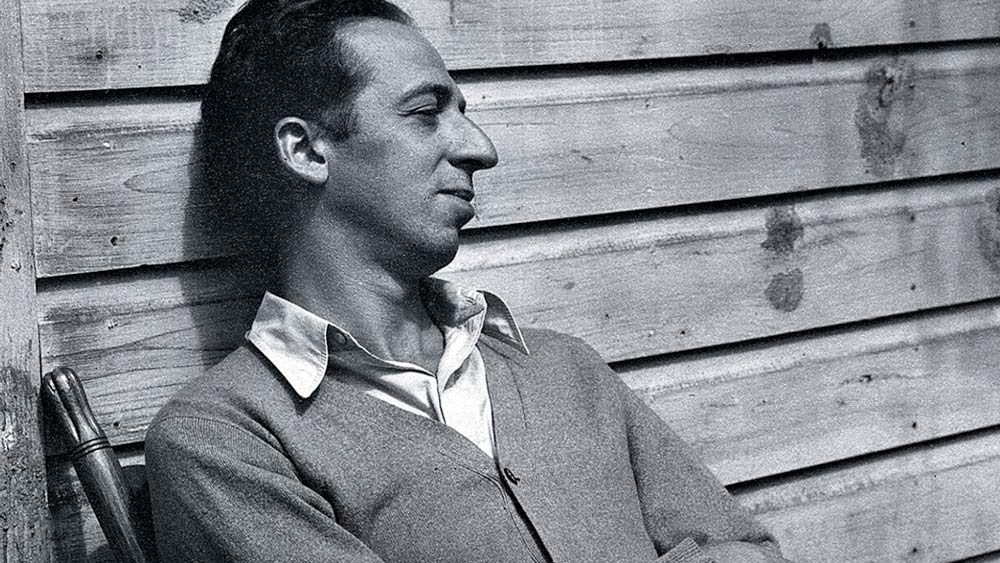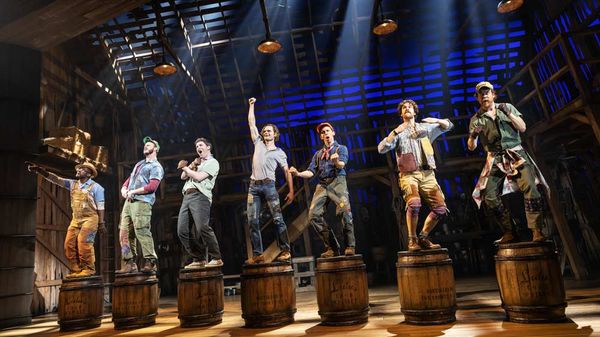May 3, 2008
Hot for teacher
Michael Wood READ TIME: 4 MIN.
Although it's set in a small town in Northern England in the 1980s, Alan Bennett's play The History Boys has plenty of relevance here in the land of MCAS and hockey team orgies. Sure, the lads at the fictional Cutlers' Grammar School are precocious in a particularly British way, but they're also recognizably rambunctious teens who are trying to get into college and get rid of their virginity - not necessarily in that order. Throw in two teachers with diametrically opposed philosophies of education, who are united only in their struggles with their erotic interest in their students, and you've got the makings of a comic drama to put Dead Poets' Society to shame.
Nevertheless, Scott Edmiston admits he had some qualms about directing the New England premiere of the play for Speakeasy Stage. Edmiston, the always in demand director who's worked with Speakeasy on Five by Tenn and The Women, had only seen the film version of The History Boys - and it left him less than enthusiastic about the material.
"There was so much buzz about the play," Edmiston recalls, "and it won all those Tony awards...and then I saw the movie and I thought, what's so special about this?" But when one of Boston's leading theatre companies offers you a show that won a Tony Award for Best Play, you don't say no. Diving into the script, Edmiston soon came to feel that the story had lost something in its translation to celluloid.
"It's a very theatrical piece," he explains. "For instance, it's set at a school, but we only see these eight students and three teachers. It's slightly abstracted, and sometimes they talk directly to the audience. The movie did a good job of opening things up, but some of the vibrancy didn't come across."
Much of that vibrancy comes directly from Bennet's smart script, which has the characters improvising stories in French, scoring points off each other by quoting poetry, and engaging in lively debates for the sheer intellectual pleasure of it.
"It's really fun to direct," says Edmiston, "because it shifts so quickly from comedy to drama. It's not just funny, it's smart funny. The banter is very sharp and clever. It's fun to be with characters that are so sharp."
Underneath the tomfoolery are some serious concerns about the state of education. The play's main conflict begins when the school's headmaster realizes that based on their test scores, the pet students of beloved teacher Hector have the chops to get into Cambridge or Oxford (or as we'd say on this side of the pond, they're Ivy League material.) Suspicious of Hector's methods, the headmaster hires a new teacher, Irwin, to make sure the boys are Oxbridge-worthy.
"It's really about how these boys are trying to decide what their value systems are,' notes Edmiston, explaining that one of the show's fundamental concerns is what constitutes a good education. While Hector has cultivated a love of learning in his students, and the believe that art and knowledge are intrinsically valuable, Irwin takes a ruthlessly practical approach; he emphasizes the importance of knowing the right things, the useful things, and teaches his students to dazzle university recruiters with their mental acumen.
While the students are swayed by the clashing ideas of Hector and Irwin, the play's seductions are more than pedagogical. The most provocative thing about The History Boys is its examination of the erotic potential in the student-teacher relationship. Both Hector and Irwin are gay - Hector allows himself the privilege of the occasional student grope, while Irwin wrestles with more serious feelings for one of the boys.
"In some ways, the play is about the intimacy of the teacher student relationship," Edmiston muses, "and how the boundaries can get blurred. Most of us have had crushes on teachers, and high school is a time of sexual awakening, so it's a very charged environment."
The fact that Hector's straight students tolerate his wandering hands is perhaps the most surprising thing about the play, but it also adds to the play's thematic complexity. Edmiston can name a long list of vaguely romantic plays and movies about teachers who make a difference, from Goodbye Mr. Chips to Dead Poets Society, which he finds overly sentimental.
"It's a metaphor for what we get form the adults in our lives," he argues. "Hector gives them all this knowledge, but he also passes along some of his damage. I think that's something we all have to confront, whether it's from a teacher or parent. We get the best of them but sometimes we get the worst too, and we have to reconcile them. Sometimes we learn things from the adults in our lives that we wish we hadn't."
"That's part of what I find really interesting about this play, that it takes this beloved-teacher genre and gives it a kind of ethical ambiguity."
The History Boys runs May 2 - June 7 at The Boston Center for the Arts, 527 Tremont St., Boston. Tickets $25 - $51. Info: 617-933-8600 or www.bostontheatrescene.com.
Michael Wood is a contributor and Editorial Assistant for EDGE Publications.







